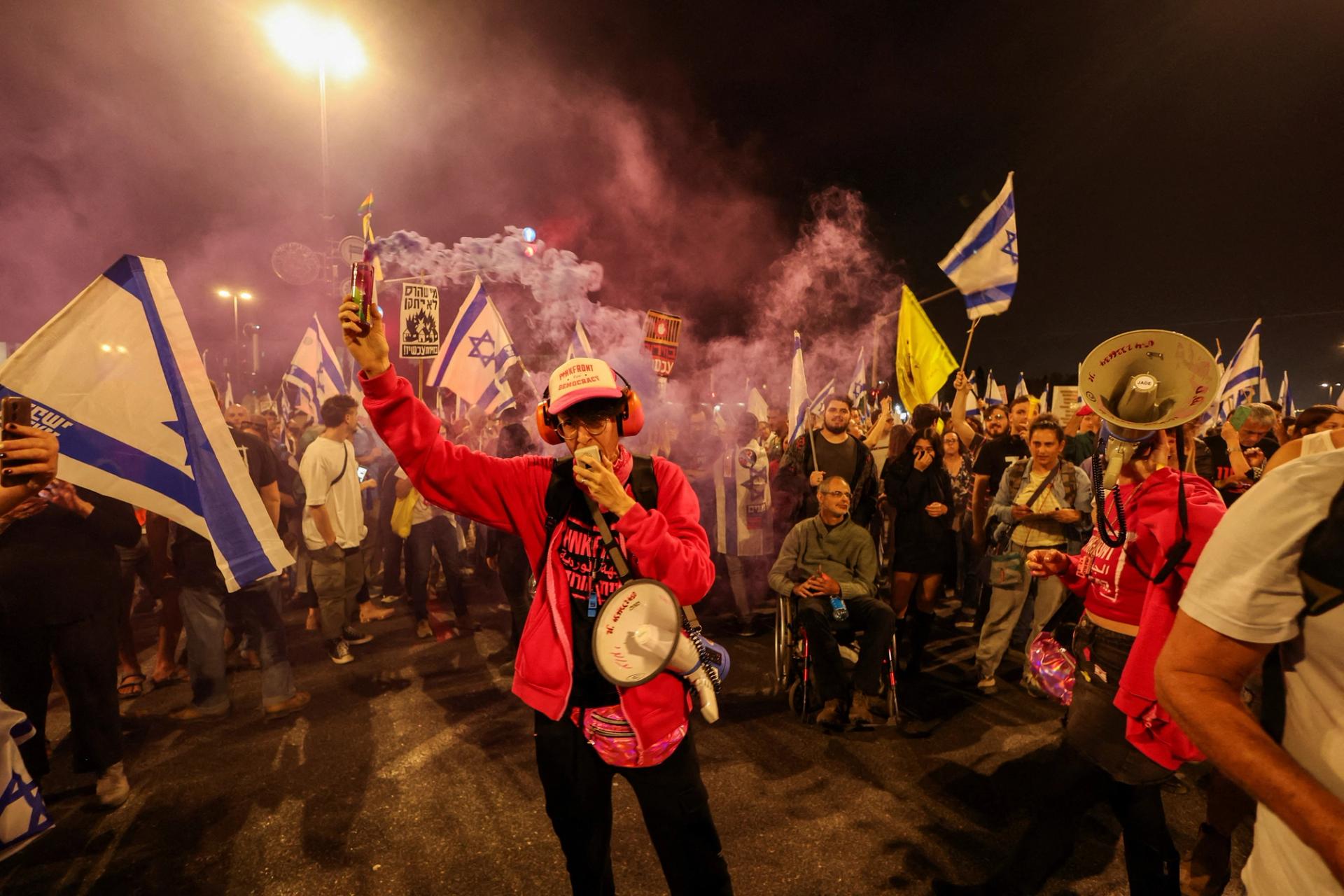The News
Tens of thousands of Israelis called for new elections over the weekend in the country’s largest anti-government protest since the war in Gaza began. Protesters packed the streets around the Israeli parliament in Jerusalem, and police used water cannons to break up demonstrations.
The collective calls for Netanyahu’s ouster mirrored the protests that swept Israel last year over the government’s proposed judicial reforms. This time, the outcry was prompted by growing frustration over Netanyahu’s handling of the war. About 130 Israelis are still being held hostage by Hamas in Gaza; Netanyahu has insisted on achieving “total victory” over the militant group, overseeing a military operation that has reportedly killed at least 30,000 Palestinians.
SIGNALS
War boosts anti-Bibi protests
Last year’s judicial reform protests died down after Hamas’ Oct. 7 attack, but the lack of a hostage deal and disagreements over calls to conscript ultra-Orthodox Haredi men — who are usually exempt from serving in the Israel Defense Forces — have renewed the public’s frustration with Netanyahu. The anti-government movement is now planning its “first significant action” since the war began, and is setting up a tent city outside the Knesset for the next four days, Haaretz wrote. The message “will be broad, but the bottom line is a call to oust the government.” Netanyahu has rejected those calls, saying Hamas would celebrate at the prospect of new elections.
Hostages’ families join anti-government protests
The father of an Israeli hostage said captives’ family members will no longer hold separate rallies and will instead “take to the streets” with those calling for a leadership change, effectively merging the two camps. Though a recent poll showed that most Israelis believe Netanyahu is doing a poor job, a Jerusalem Post columnist argued that the hostages’ families “do their cause no favor by being identified with one side of the political map,” and could alienate those who want the hostages returned without bringing down the government.
Protests come at tense time for US-Israel relations
U.S. and Israel delegations are set to hold virtual talks Monday about Israel’s planned invasion of the southern Gaza city of Rafah; Netanyahu canceled the in-person visit after the U.S. decided not to veto a UN resolution calling for an “immediate ceasefire” in Gaza, instead abstaining. Washington has warned against the invasion of a town where more than a million Palestinians are sheltering, and has proposed alternatives. For Netanyahu, the virtual meeting is a way to “save face” by still talking with the White House without sending a full delegation, senior Israeli officials told Axios’ Barak Ravid.

